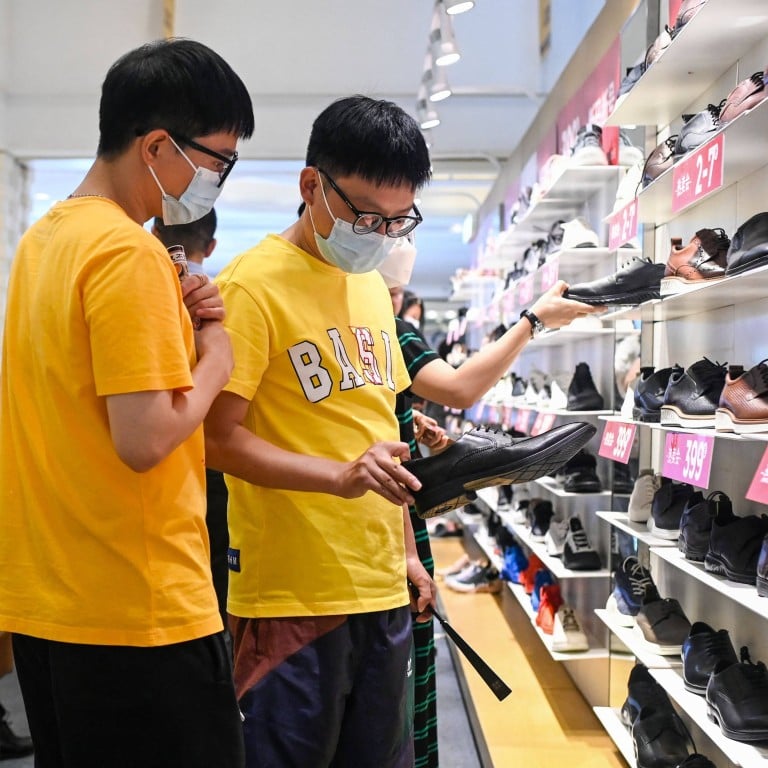
China urged to subsidise cash-strapped households despite higher holiday spending
- Chinese holidaymakers boost tourism industry during Dragon Boat Festival but recovery still threatened by broader slump in consumption
- Think tank calls for Beijing to issue 1.5 trillion yuan in special treasury bonds to prop up disposable income
Domestic trips grew 32.3 per cent year on year to 106 million between Thursday and Saturday and tourism revenue increased 44.5 per cent from a year earlier to 37.3 billion yuan, according to data released by the Ministry of Culture and Tourism.
The number of trips was about 112.8 per cent that of the same period in 2019, and the revenue was 94.9 per cent of the total recorded four years earlier.
Meow money, more travel: what purchases are Chinese prioritising this year?
The Ministry of Commerce also reported other kinds of “vigorous spending” during the holiday, with jewellery sales up 13.6 per cent year on year and an 18.5 per cent rise in entertainment and leisure spending, state broadcaster CCTV reported on Saturday evening.
“It’s the most effective way to increase the proportion of household disposable revenue [in the national total income] and improve income distribution,” Liu Xiaoguang, a Renmin University professor and co-author of the think tank’s midyear research report, told a forum on Sunday.
“Also, it can help boost the development of the digital yuan.”
The think tank said growth in the average disposable income was about 0.2 percentage points lower than the GDP expansion in the past five years – a gap that expanded to 0.7 percentage points in the first quarter.
A bigger dose of policy support would be needed in the second half of this year, Liu said, warning that insufficient support could undermine the country’s post-Covid recovery.
China’s retail sales growth slowed to 12.7 per cent in May from an 18.4 per cent increase in April, according to the National Bureau of Statistics. The growth in consumer goods spending, which accounts for around 90 per cent of retail sales, moderated to 10.5 per cent from 15.9 per cent in the same period.
China’s ‘golden week’ lives up to its name with strong spending start
Consumption contributed two-thirds of China’s growth in the first quarter, as policymakers looked to the domestic market to prop up growth. The reluctance of households to loosen their purse strings has already raised speculation that the national recovery is losing steam.
Major Wall Street banks, including JPMorgan and Citi, have slashed their 2023 China growth forecasts in the past two weeks to levels slightly higher than Beijing’s growth target of around 5 per cent.
Earlier this month, Zhang Ming, deputy director of the Chinese Academy of Social Sciences’ Institute of Finance and Banking, also called for special treasury bond to subsidise Chinese households.
In the past, Beijing has sought to boost growth by doubling down on infrastructure investment and – unlike Western countries – only given subsidies to low-income families and the unemployed.
It issued 1 trillion yuan in special treasury bonds in early 2020, when the first wave of the coronavirus pandemic plunged China’s economic growth into negative territory.


